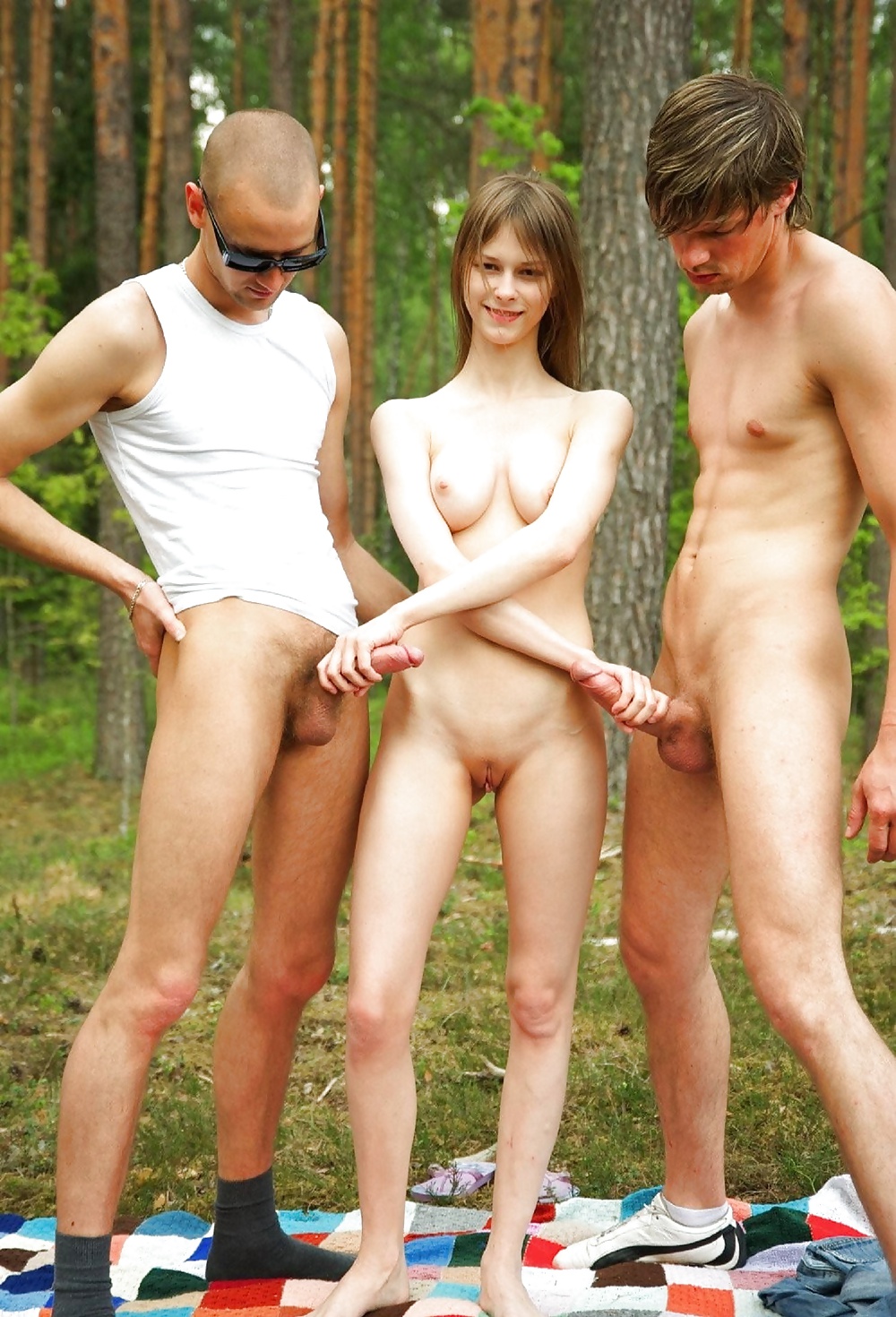It's almost undeniable that in our connected world, information travels at an incredible speed, and sometimes, the sheer volume of it can feel a bit overwhelming. You know, when a search term like "nude piper rockelle" pops up, it really makes you pause and think about how stories, both true and not so true, get shared online. This kind of query, frankly, highlights a larger conversation we all need to have about what we see, what we believe, and how we interact with content featuring public figures, especially young ones. It’s a moment, arguably, to consider the impact of our digital footsteps.
So, when people look up things like "nude piper rockelle," it’s often driven by curiosity, perhaps a desire for information, or even a simple misunderstanding about how online content works. Yet, it also brings into sharp focus the very real challenges that come with being a public personality today. There’s a constant flow of content, and with it, the potential for rumors or fabricated stories to spread pretty quickly, sometimes with little regard for the truth or for someone's personal boundaries.
This article aims to explore the landscape around such search queries, not by confirming or denying specific claims, but by looking at the broader picture of online information, the importance of digital literacy, and the need for a respectful approach to content involving individuals. We'll talk about how easy it is for things to get twisted and why being a responsible online citizen is, in a way, more important than ever before.
- Is Karol G Pregnant
- How Old Is Bobby Shermans Wife Bridget
- Haley Kalil Boyfriend
- Joanna Holland
- What Happened To Richard Taubman
Table of Contents
- Understanding Piper Rockelle's Public Persona
- Piper Rockelle: Public Details
- The Spread of Online Misinformation
- Digital Citizenship and Privacy in the Online Space
- Navigating Sensitive Search Queries
- Frequently Asked Questions
- Moving Forward with Digital Responsibility
Understanding Piper Rockelle's Public Persona
Piper Rockelle is, you know, a very well-known figure in the world of online content creation, particularly popular among younger audiences. She gained fame through her YouTube channel, where she shares a variety of videos, including vlogs, challenges, and comedic skits, often featuring her friends and family. Her content is typically lighthearted and aimed at a demographic that enjoys relatable, fun, and engaging stories. She’s built a significant following, and that, in itself, is quite a feat in today's crowded digital space.
Her presence online is, basically, about creating a community around her cheerful and energetic personality. She often collaborates with other young creators, which further broadens her reach and appeal. This kind of public life means that a lot of people are watching, and that attention, while great for building a career, also comes with its own set of challenges, particularly when it comes to privacy and how information about her is perceived.
It’s important to remember that for someone like Piper, her online persona is a carefully curated part of her professional life. What we see is often a representation of her work and creativity, designed for a specific audience. This distinction between a public figure's persona and their private life is, arguably, a bit blurry for many online, but it’s a crucial one to keep in mind when consuming or sharing content.
- Kalogeras Sisters House Location Google Maps
- Nicoleponyxo Nude
- Roddy Mcdowall
- 5movierulz Telugu 2024
- Alexandra Hall
Piper Rockelle: Public Details
Here's a quick look at some general public information about Piper Rockelle, based on what's widely available through her public platforms:
| **Known For** | YouTube content creator, singer, actress |
| **Primary Content** | Vlogs, challenges, skits, music videos |
| **Audience** | Primarily children and young teenagers |
| **Online Presence** | Active on YouTube, Instagram, TikTok, etc. |
The Spread of Online Misinformation
When a search query like "nude piper rockelle" surfaces, it points to a much bigger issue: the ease with which misinformation and false narratives can spread across the internet. It's really quite astonishing how quickly a rumor or an unverified claim can travel, sometimes reaching millions of people before anyone has a chance to fact-check it. This phenomenon isn't new, of course, but the speed and scale of today's digital platforms just make it, you know, incredibly impactful.
Think about it: a piece of content, whether it's a photo, a video, or just a text post, can be shared, re-shared, and re-contextualized almost instantly. This process, in a way, is like the "spreading and leveling" of information, but without the "hard work" of verification. It means that something completely untrue can gain traction and seem legitimate just because a lot of people are talking about it, or because it appears in a search result.
Why Misinformation Spreads
There are, you know, several reasons why false information tends to spread so widely online. One reason is the sheer volume of content; it's hard for anyone to keep up. Another is that sensational or shocking claims often grab attention more effectively than mundane truths. People are, in a way, drawn to things that are surprising or controversial, and that can sometimes override their critical thinking.
Also, social media algorithms often prioritize engagement, meaning content that generates a lot of likes, shares, and comments will be shown to more people, regardless of its accuracy. So, a false claim that sparks outrage or intense discussion can, ironically, get a much wider audience than a well-researched, factual report. This creates a sort of feedback loop where, apparently, the more sensational something is, the more it gets seen.
And then there's the issue of context. Images or videos can be taken out of their original setting and used to tell a completely different story. A picture from a perfectly innocent situation, for instance, might be cropped or presented with a misleading caption to suggest something entirely different. This kind of manipulation is, quite frankly, a serious problem that contributes to the spread of untrue narratives.
The Impact on Individuals
For public figures, especially those who are young, being the subject of misinformation can be, like, incredibly damaging. It's not just about reputation; it can affect their personal well-being, their mental health, and even their safety. Imagine having false rumors or inappropriate content associated with your name, spreading across the internet, and knowing that millions of people might be seeing it. That’s, honestly, a lot for anyone to handle.
The internet, in a way, creates a space where people can feel disconnected from the real-world consequences of their actions, like sharing unverified content. But for the person at the center of a false narrative, the impact is very real and can be long-lasting. It’s a stark reminder that behind every public persona is, actually, a real person with feelings and a right to privacy.
Digital Citizenship and Privacy in the Online Space
Thinking about searches like "nude piper rockelle" really brings up the whole concept of digital citizenship and the vital role privacy plays online. We all, in a way, have a responsibility for how we act and what we share in the digital world. It's not just about avoiding harmful content; it's also about actively contributing to a more respectful and truthful online environment. This includes, you know, being mindful of what we search for and how we interpret the results.
The internet, for all its amazing benefits, also presents unique challenges when it comes to personal boundaries. What’s considered "public" can sometimes feel like a free-for-all, but that doesn't mean individuals lose their right to privacy, especially when they are minors. It's, arguably, a fine line that we all need to navigate with care and consideration.
Respecting Privacy Boundaries
One of the most important aspects of being a good digital citizen is respecting privacy. Just because someone is a public figure doesn't mean every aspect of their life is fair game for scrutiny or speculation. This is particularly true for young people who are still growing and developing. There's a clear difference between content a creator chooses to share and private information or fabricated content that is spread without their consent.
The "My text" references things like "acceptable nude location" or "group hot tub party, nude beach, c/o resort, driving nude (more than one...)" in a context of consensual, private, or designated spaces for naturism. This is, you know, very different from the unsolicited or fabricated spread of content about a public figure, especially a minor. It highlights the importance of context and consent in any discussion of privacy and imagery. We need to remember that personal boundaries, even for those in the public eye, are very important.
Sharing or even searching for unverified or potentially inappropriate content about someone, especially a minor, can have serious ethical and legal implications. It’s a bit like the idea that "many guys want their wives to jump right into the social nude scene from the get go," but for most women, "this only frightens them more and instead of moving forward, you risk turning" them away. Similarly, pushing boundaries online without consent or verification can lead to harm and distrust, not engagement.
The Role of Media Literacy
Developing strong media literacy skills is, frankly, crucial in today's information-rich world. This means being able to critically evaluate the information you encounter online, questioning its source, and considering its potential biases or inaccuracies. When you see a sensational headline or a surprising image, your first thought should probably be, "Is this actually true?"
Learning to identify fake news, doctored images, and misleading narratives is a skill that everyone, from young people to adults, needs to cultivate. It involves checking multiple reputable sources, looking for evidence, and understanding that not everything you see online is, you know, accurate. This critical approach helps protect both yourself from misinformation and others from the harm it can cause.
For instance, if you come across something about "nude piper rockelle," a media-literate approach would involve immediately questioning the authenticity of such a claim, considering the source, and understanding the context of her public persona as a young, family-friendly content creator. It’s about being smart consumers of information, basically.
Navigating Sensitive Search Queries
When a search query includes terms that might be sensitive or even inappropriate, it's a good moment to think about the intent behind the search and the kind of results it might yield. For instance, if you're looking up "nude piper rockelle," are you seeking information about a public figure, or are you inadvertently contributing to the spread of potentially harmful content? It’s a distinction that, you know, matters a lot.
Search engines work by trying to match your query with existing content. So, if there's a lot of discussion, even if it's about misinformation, related to a sensitive term, those results might appear. This doesn't validate the content, but it does highlight the importance of how we phrase our searches and how we interpret the information that comes back. It's, arguably, a bit of a dance between what we ask and what the internet provides.
For anyone, especially parents or educators, having conversations about online safety and responsible searching is very important. It’s about teaching young people to be critical thinkers and to understand the potential consequences of their online actions, both for themselves and for others. This includes understanding that searching for certain terms can, in a way, inadvertently promote or perpetuate harmful narratives.
Frequently Asked Questions
Here are some common questions that arise when discussing online content and public figures:
**How can I verify if information about a public figure is true?**
To check if information is accurate, you should, you know, look for multiple reliable sources. Official websites, reputable news organizations, and verified social media accounts are usually good places to start. Be wary of sensational headlines or anonymous sources, as they can often be misleading. Cross-referencing information across different, trusted platforms is, basically, a smart move.
**What are the potential harms of spreading misinformation about individuals online?**
Spreading false information can cause, like, significant emotional distress, damage reputations, and even lead to real-world harassment or threats for the person involved. For young public figures, it can severely impact their mental health and personal safety. It's, frankly, a very serious issue with tangible consequences.
**What should I do if I encounter inappropriate or unverified content about a minor online?**
If you come across content that seems inappropriate, unverified, or exploitative, the best thing to do is, usually, report it to the platform it's on. Do not share or engage with it, as that can inadvertently help it spread further. Many platforms have clear reporting mechanisms for such content, and using them helps protect individuals and maintain a safer online environment. You can learn more about online safety guidelines on our site.
Moving Forward with Digital Responsibility
Ultimately, the conversation around "nude piper rockelle" and similar search queries serves as a powerful reminder of our collective responsibility in the digital age. It's, arguably, about more than just a search term; it’s about fostering an online environment where truth, respect, and privacy are valued. We all have a part to play in making the internet a safer and more positive space for everyone, especially for young people who are growing up in the public eye.
Let's remember that behind every screen name and every public profile is a person who deserves respect and protection from harmful content. By being thoughtful about what we search for, what we share, and what we believe, we can, you know, contribute to a healthier digital landscape. It’s about making choices that reflect good digital citizenship, always. You might find it helpful to link to this page for more insights on media literacy.
Related Resources:



Detail Author:
- Name : Ramon Beer DVM
- Username : melisa82
- Email : roob.johnpaul@littel.com
- Birthdate : 2006-08-16
- Address : 26949 Jeremie Spurs Suite 313 Runteberg, HI 63011-5217
- Phone : (938) 352-3772
- Company : Jacobson and Sons
- Job : Civil Engineer
- Bio : Et non soluta voluptates est ipsa sit et. Molestiae dolor suscipit voluptatem est quo. Mollitia corrupti tempore dolore occaecati. Nemo corrupti nesciunt corporis quos illum.
Socials
tiktok:
- url : https://tiktok.com/@londricka
- username : londricka
- bio : Consequatur voluptas est tempora velit aut commodi a.
- followers : 6682
- following : 2766
twitter:
- url : https://twitter.com/lulu_dev
- username : lulu_dev
- bio : Culpa rerum est ut nobis enim. Nesciunt tenetur ea eaque et. Eius eum exercitationem corrupti corrupti.
- followers : 1847
- following : 1018
instagram:
- url : https://instagram.com/ondricka1995
- username : ondricka1995
- bio : Eum qui earum et ea aut sapiente. Magnam sapiente est qui laudantium qui numquam facilis.
- followers : 5540
- following : 1662
linkedin:
- url : https://linkedin.com/in/lulu6258
- username : lulu6258
- bio : Aliquid quis impedit sint qui hic libero sed.
- followers : 4446
- following : 504
facebook:
- url : https://facebook.com/ondricka2016
- username : ondricka2016
- bio : Quibusdam reiciendis quisquam saepe dicta aliquid sit.
- followers : 6776
- following : 1917